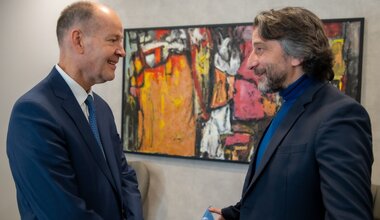A call to support Kosovo women pushing the boundaries of business
For Kosovo-Egyptian woman Albana Raishtaj, it’s been a long journey – from being forced to drop out of school at the age of 14 to giving inspirational talks on her role as a self-made businesswoman.
“I was denied education and it haunted me half of my life,” she told an audience of about 200 people during her Ted-X-style talk at the 2023 United Nations Global Open Day last month.
But now, 18 years later, the mother-of-three from western Kosovo’s Klinë/Klina municipality is running her own cleaning company. Elava employs another seven women and serves approximately 100 customers, including cafes, small offices, apartment buildings and private households.
Women lifting women
“For my dreams to become reality, I pursued the education required to work and advance my career,” Albana explained.
She says her life was turned around by the mentoring and training she received from the women-run Jahjaga Foundation, established by Kosovo’s former President Atifete Jahjaga.
“Women are not there to only get married and take care of children and the elderly. Women must also be able to pursue and achieve their professional dreams,” Albana said.
Around the world the United Nations hosts annual Global Open Days in furtherance of UN Security Resolution 1325 on Women, Peace, and Security. This year, co-hosts UNMIK and UN Women themed the day ‘Women Breaking Boundaries: Economic Empowerment for a Better Future’ and combined a panel session, two Ted-X-style talks and keynote remarks with a trade fair.
Kosovo-Turkish woman Ramiye Salya, the Executive Director of the Women's Association in Mamuşa/Mamushë/Mamuša, gave the second Ted-X-style talk during the day.
Ramiye’s Association was only established in the municipality a few months ago but has already supported about 30 women to gain self-employment.
“There are many people who obstruct women and keep us from advancing professionally, but there are also many people who support us, including organisations such as the UN Mission in Kosovo and UN Women. We will work until the end to make sure to fulfil the dreams of the women we are supporting,” she told the audience.
Ramiye says she is intent on showing her two daughters and son how to fight obstacles and fulfil their dreams.
Going regional
Sanija Murati is the Executive Director of NGO LADY, which is now thriving – but it wasn’t always so. Sanja began her business journey back in 2004 when she became a widow just three months after arriving to Kosovo from Bosnia and Herzegovina, with three children to feed.
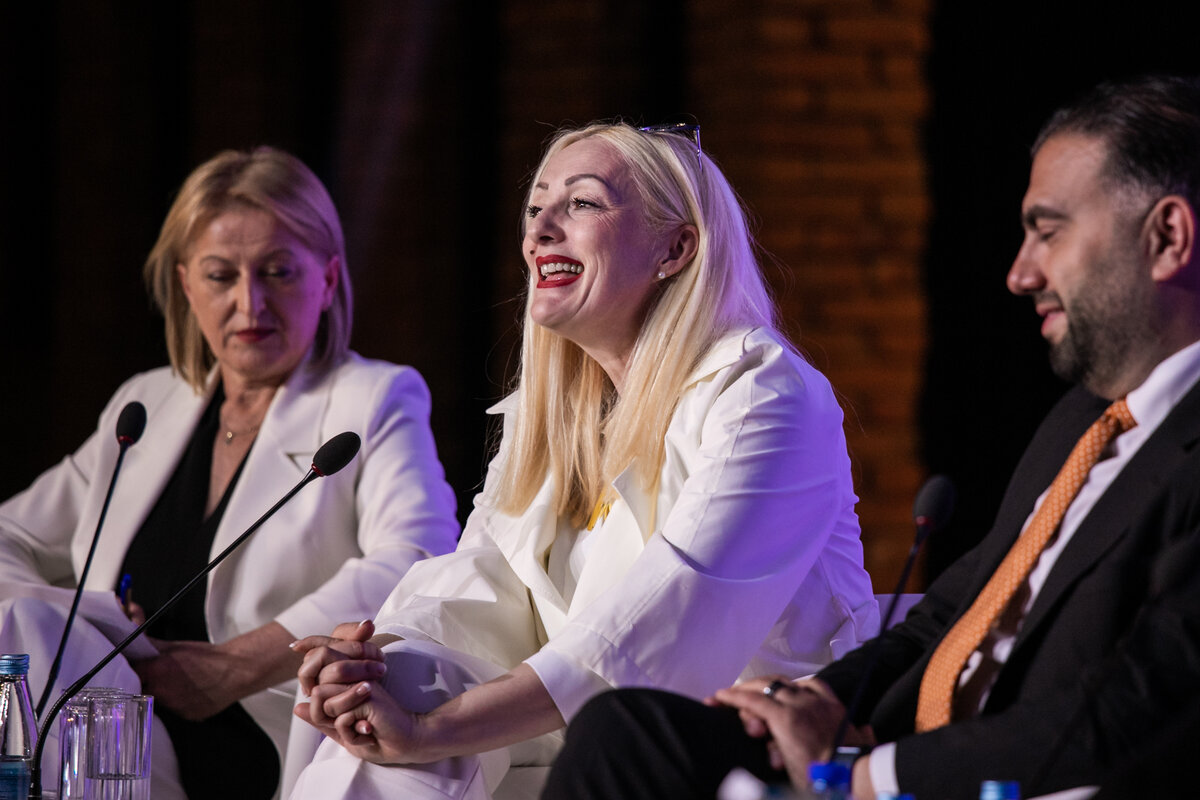
“No mother can live comfortably knowing that her children are at risk,” she said during a panel on economic empowerment moderated by Head of UN Women Vlora Nushi.
“I spoke no Albanian when I first came to Kosovo, and I had no knowledge of how to run a pastry business, but I had a passion for pastries and my children gave me the strength to pursue it.”
She started humbly, baking pastries at home, while Kosovo-Albanian women helped her make signs to promote her homespun business in Podujevë/Podujevo.
Sanije started introducing new products to the Kosovo market, such as cheese, fruit, and customised cakes, before launching her NGO to help other women develop their pastry businesses; she estimates her NGO has assisted more than 1000 women from the Western Balkans so far. Just recently she received the Women Guide Award for most successful women manager from North Macedonia, and the Power of Women Award from the Montenegro Association of Women Entrepreneurs.
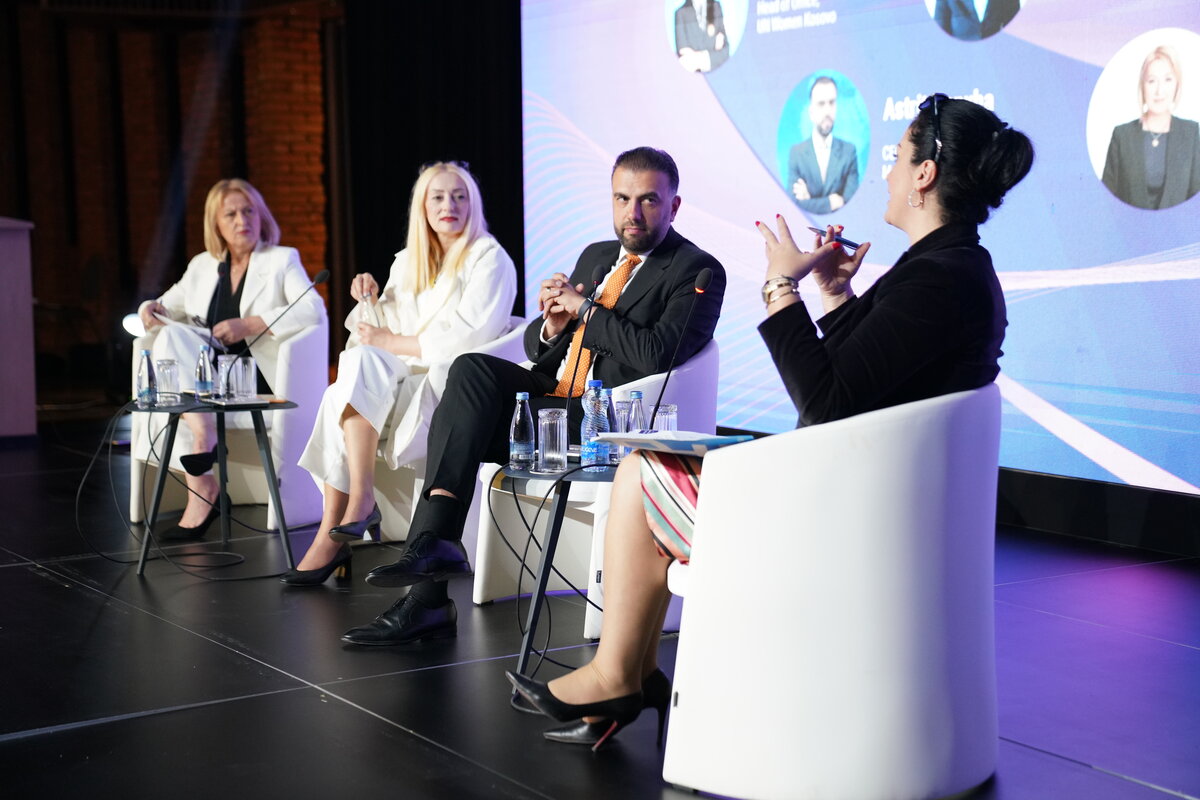
During the panel, Ms Nushi shared World Bank statistics noting that less than a quarter of all businesses in Kosovo in 2022 were women-owned – and those ones are mainly micro and small enterprises – while the unemployment rate of Kosovo women is the highest in the Western Balkans.
“Currently, there are few leading positions occupied by women. [However] without the participation of women, we cannot have sustainable peace. If women are more involved in peacemaking, it will be more sustainable.”
As the sole male participant on the panel Kosovo Manufacturing Club CEO Astrit Panxha spoke in favour of ensuring women’s work was truly seen and valued – particularly home care work.
“Society, [and] men in particular, are not recognising that, and that has to change, while institutions need to formalise the unpaid work and start paying women for all their work – there are not enough kindergartens or homes for the elderly.”
A fair way to take things forward
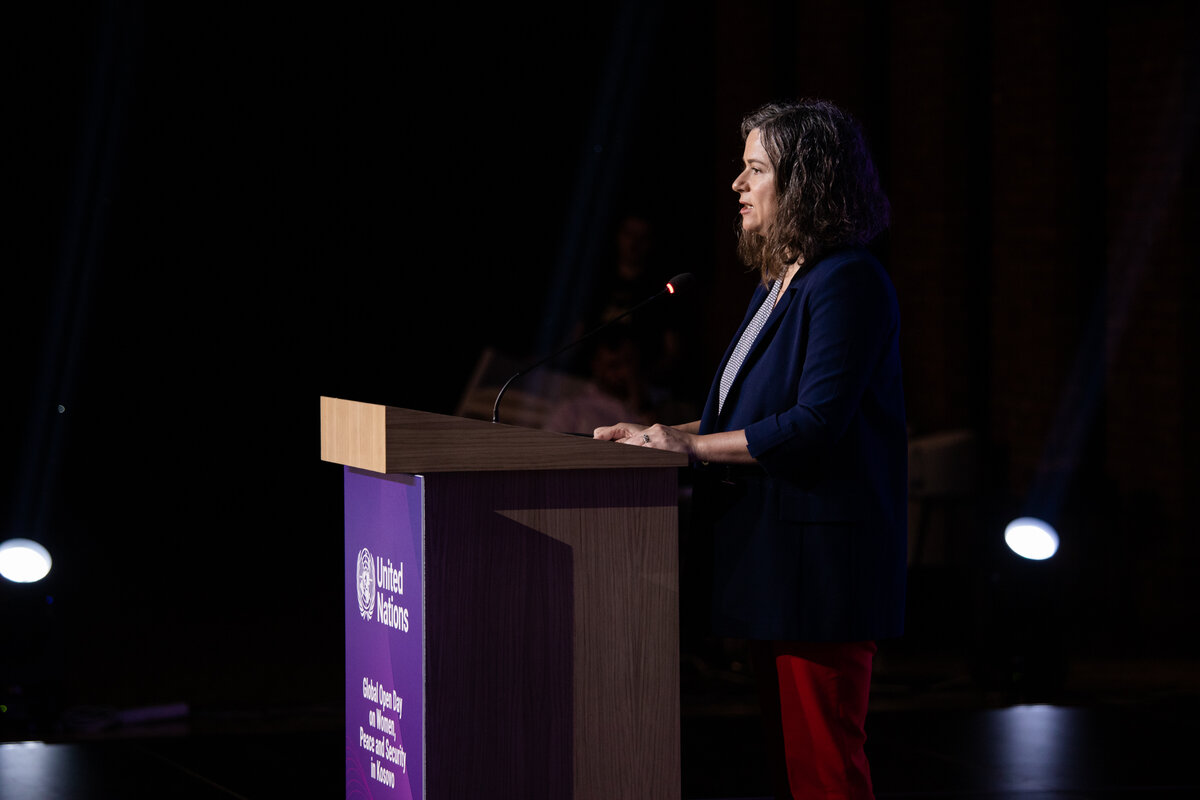
During her opening remarks, Head of UNICEF and Development Coordinator ad interim in Kosovo Nona Zicherman encouraged a more formalised central policy to lift women in business.
“There are two simple truths that all of us know, but that bear repeating in full: Equal economic empowerment between the sexes yields huge dividends. And the converse conclusion: exclusion, discrimination and outdated gender stereotypes - factors which keep women out of jobs - are harmful not just to the women concerned, but to society at large,” she said.
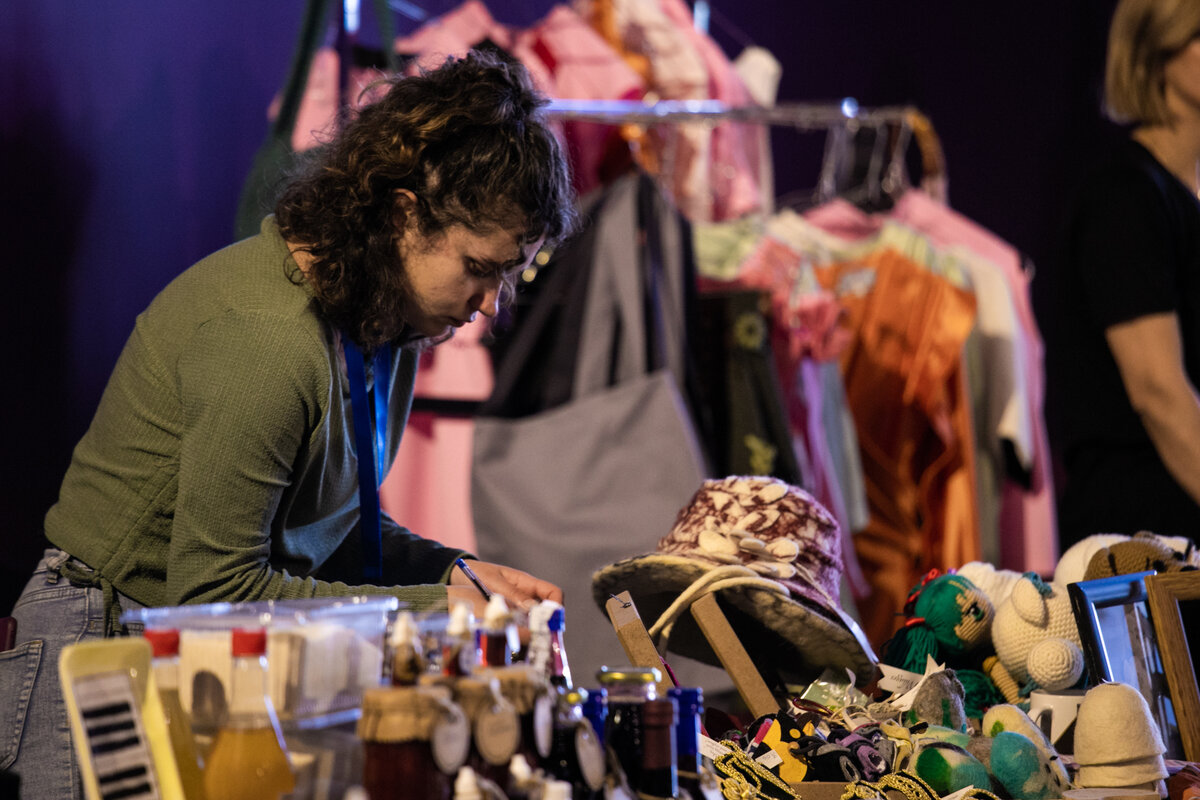
Outside the main programme, a trade fair showcased 13 Kosovo women-led businesses, selling everything from clothes to medicinal products – a visible display of just some of what Kosovo’s women are contributing to society.
This enormous talent and the strength of character needed to tackle business was highlighted in closing remarks by UNMIK Deputy Special Representative of the Secretary-General Barrie Freeman.
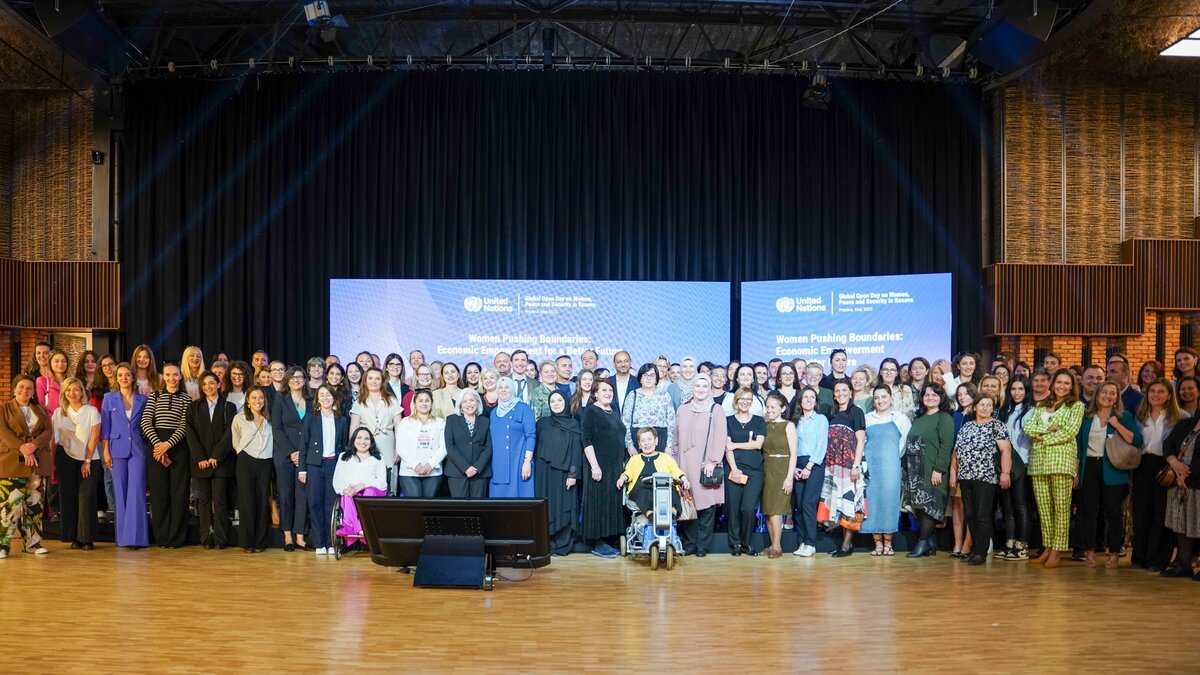
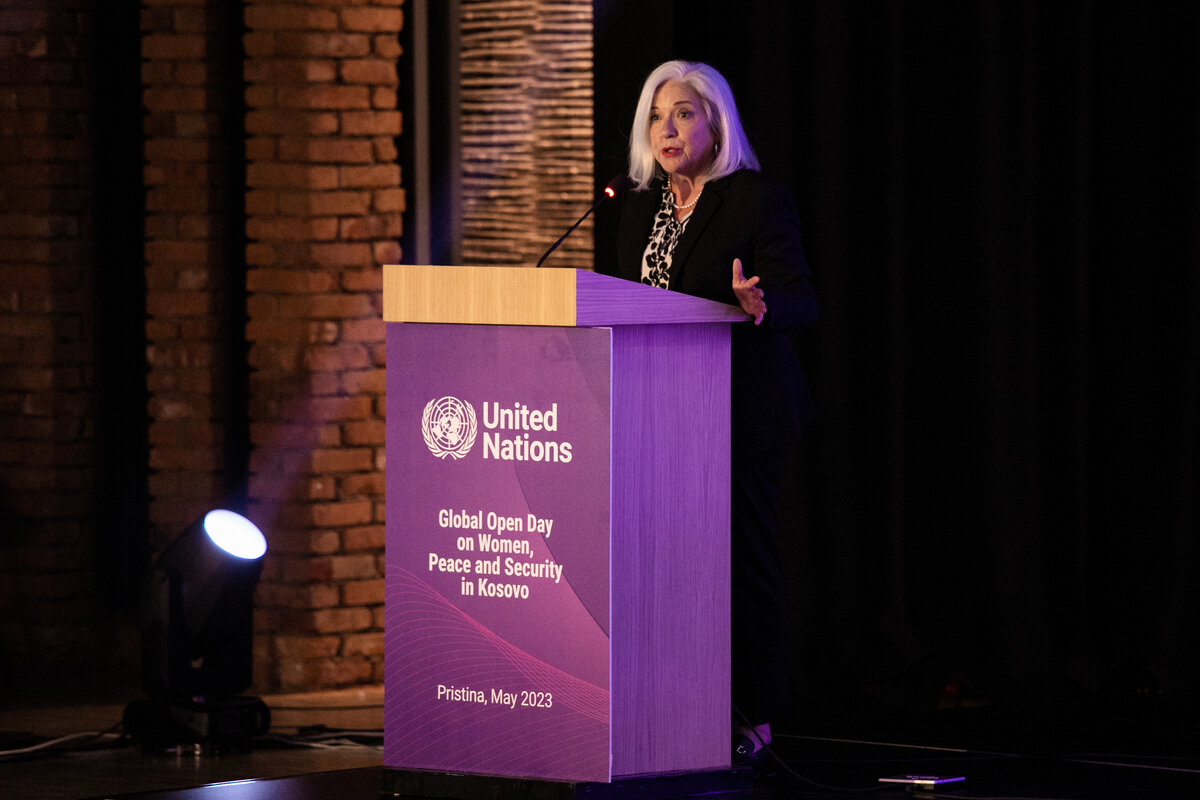
“Today I saw women in entrepreneurship who have pushed boundaries and progressed economically. All of them have made their decisions on where and when to invest, how to improve their social and economic status and support their families,” she shared, concluding with a call to action from those in positions to help:
“All we can do now is to continue to support them.”
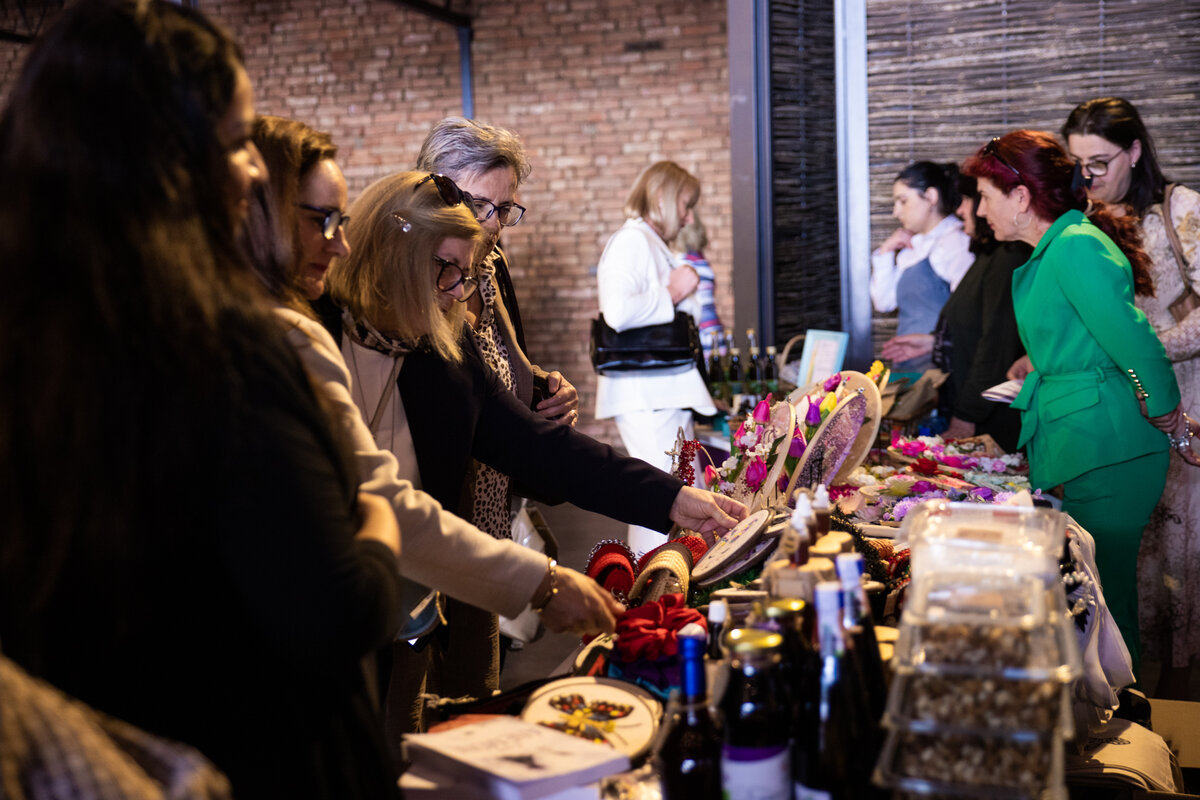

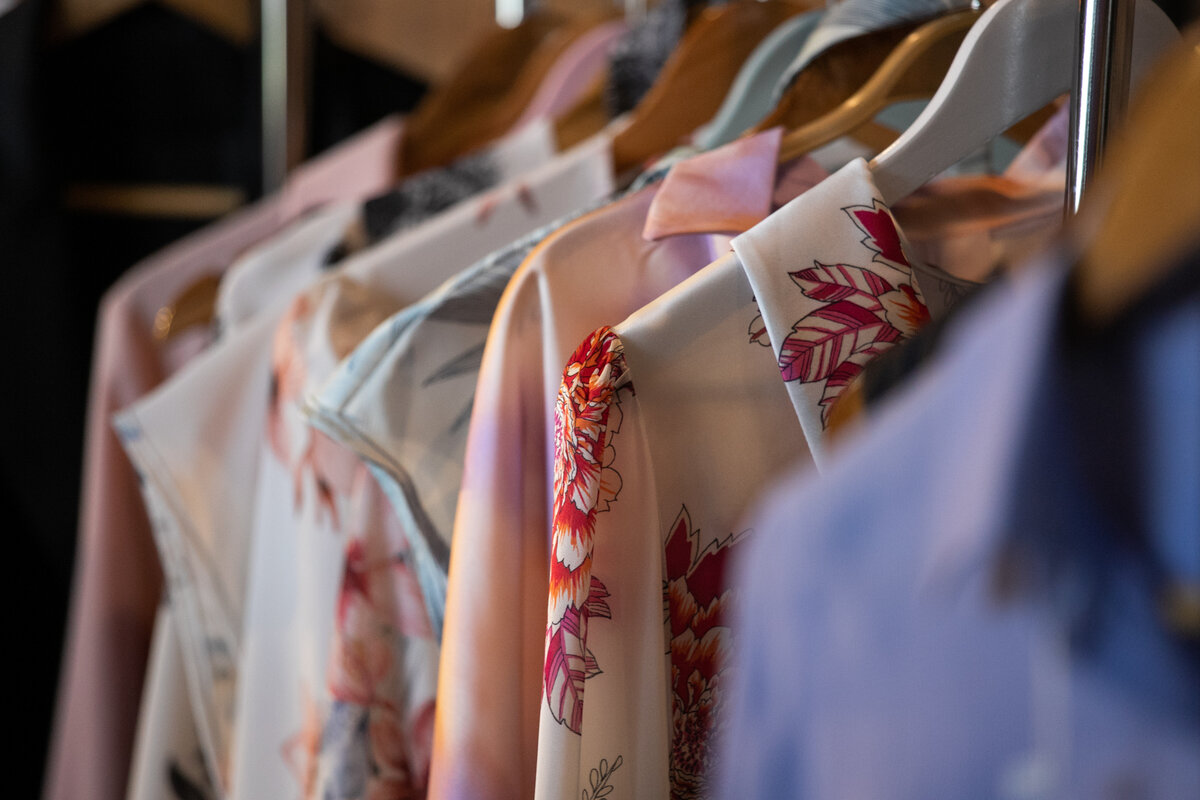
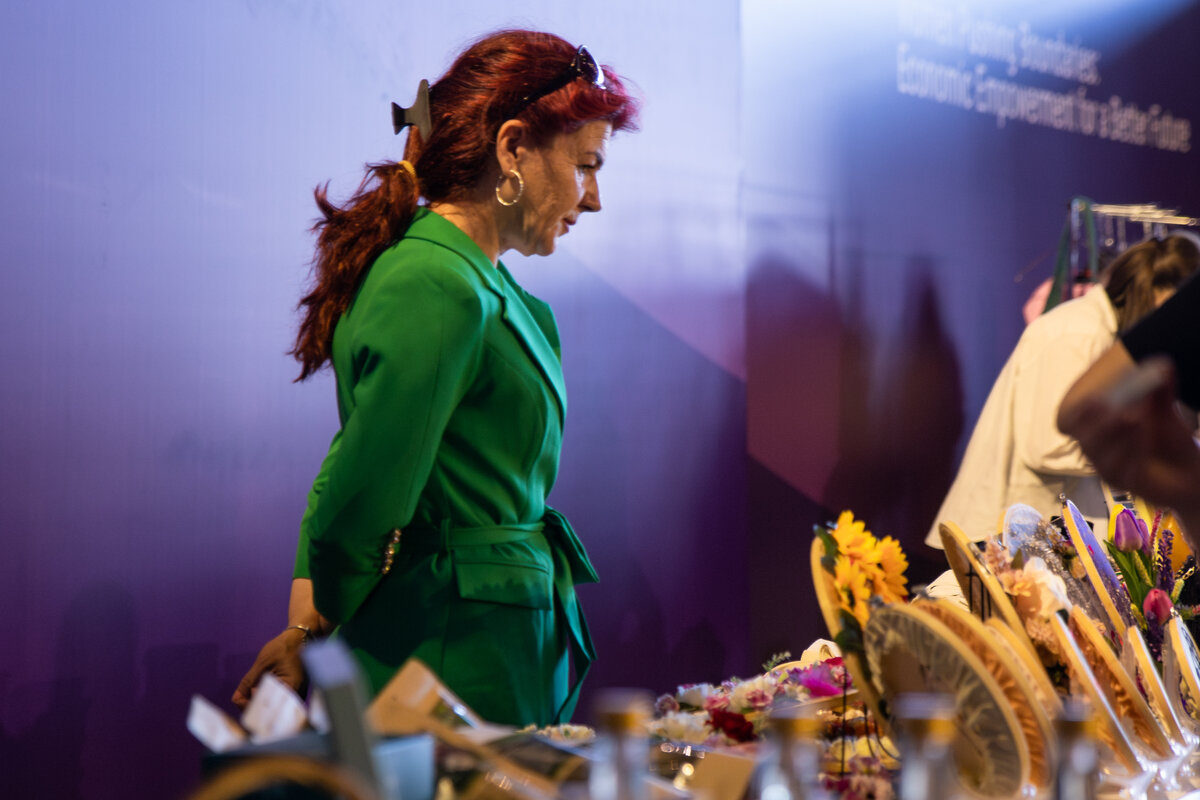
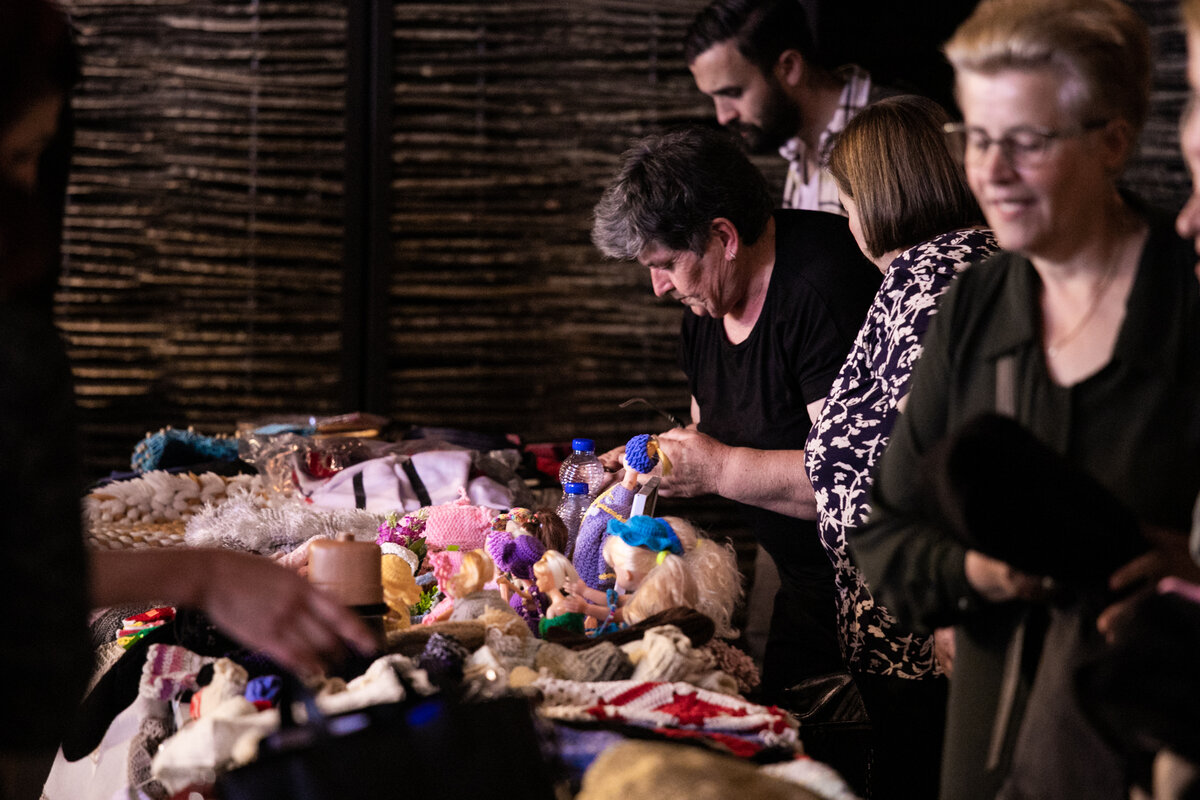
 UN
UN United Nations Peacekeeping
United Nations Peacekeeping





